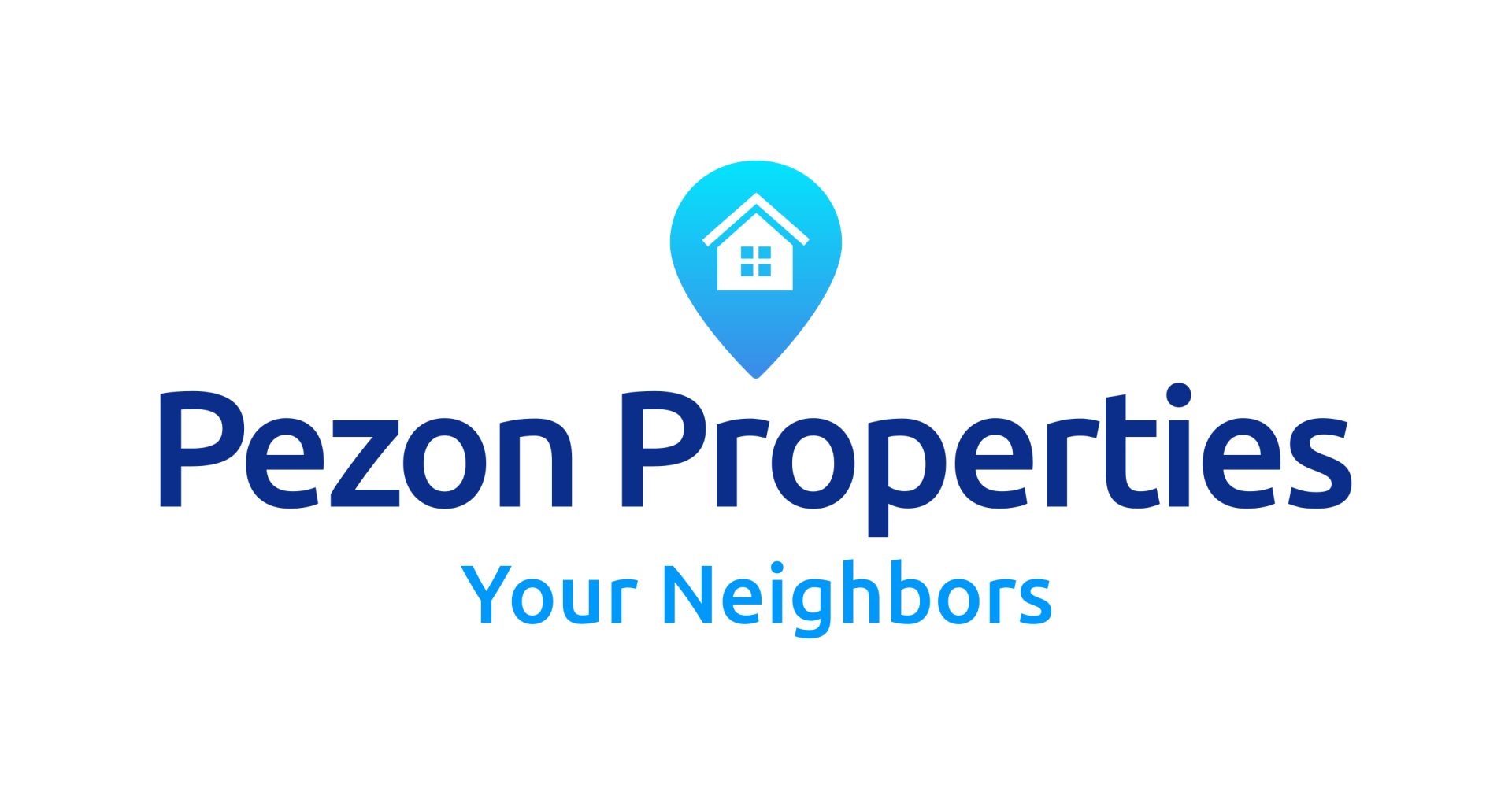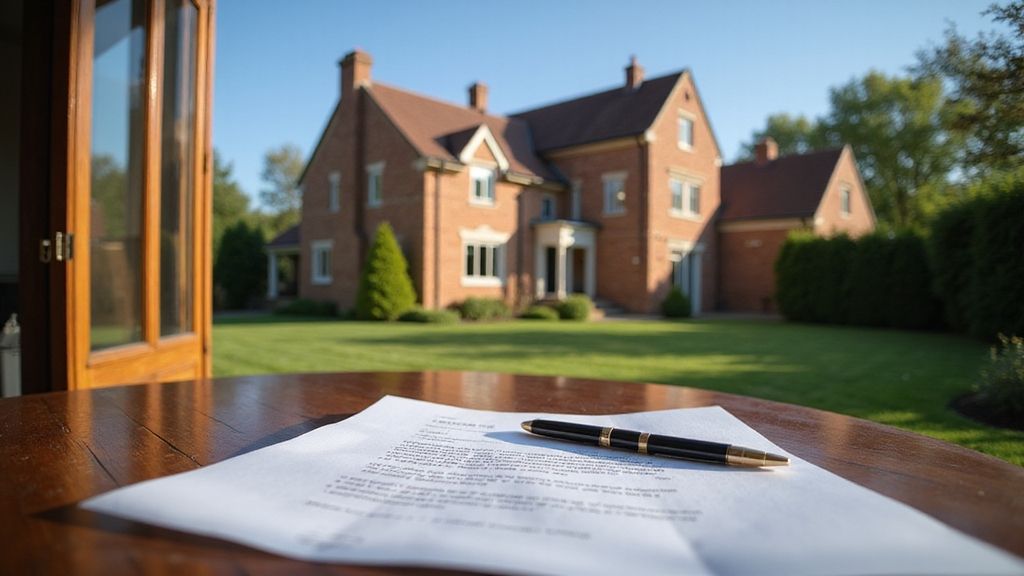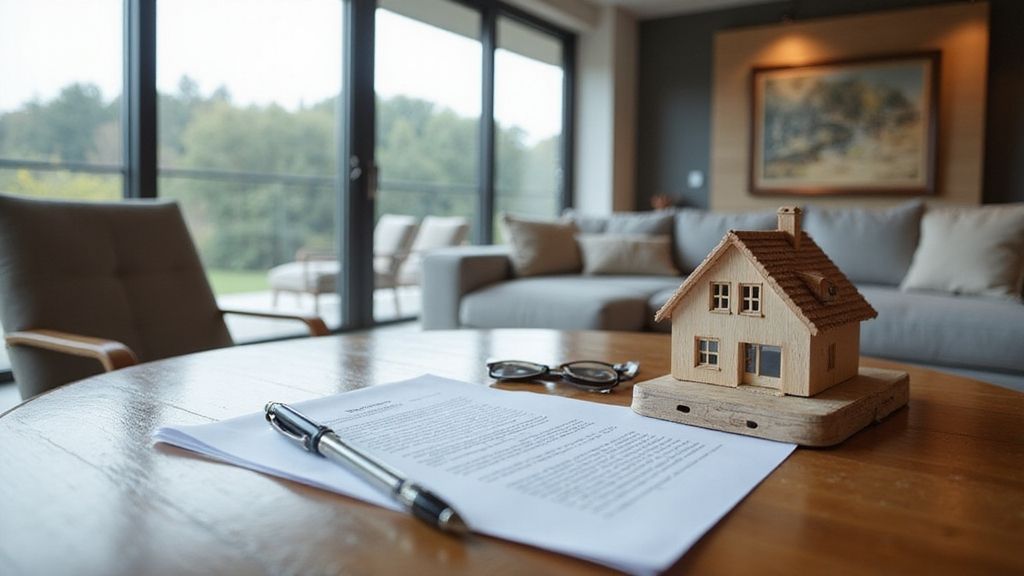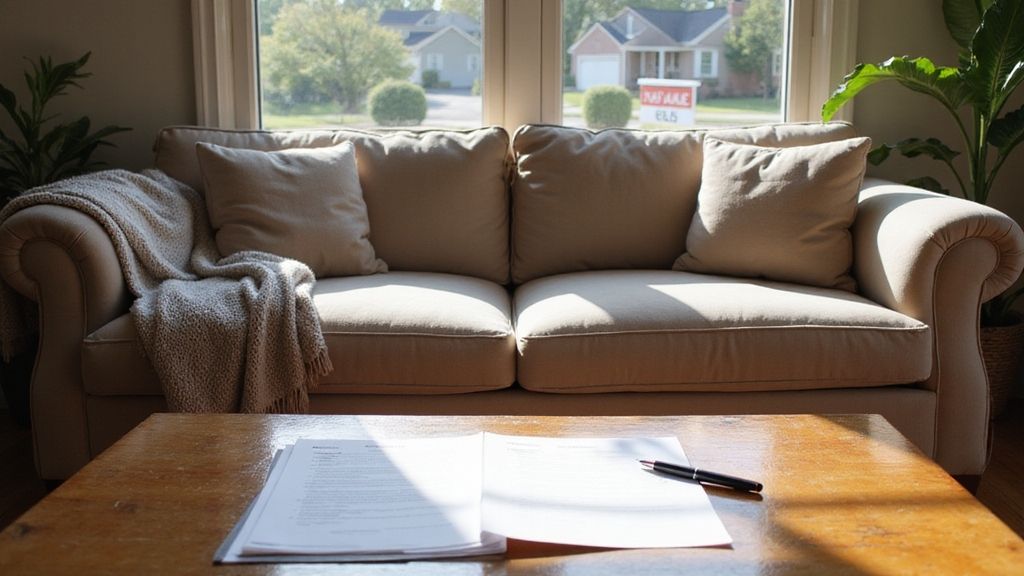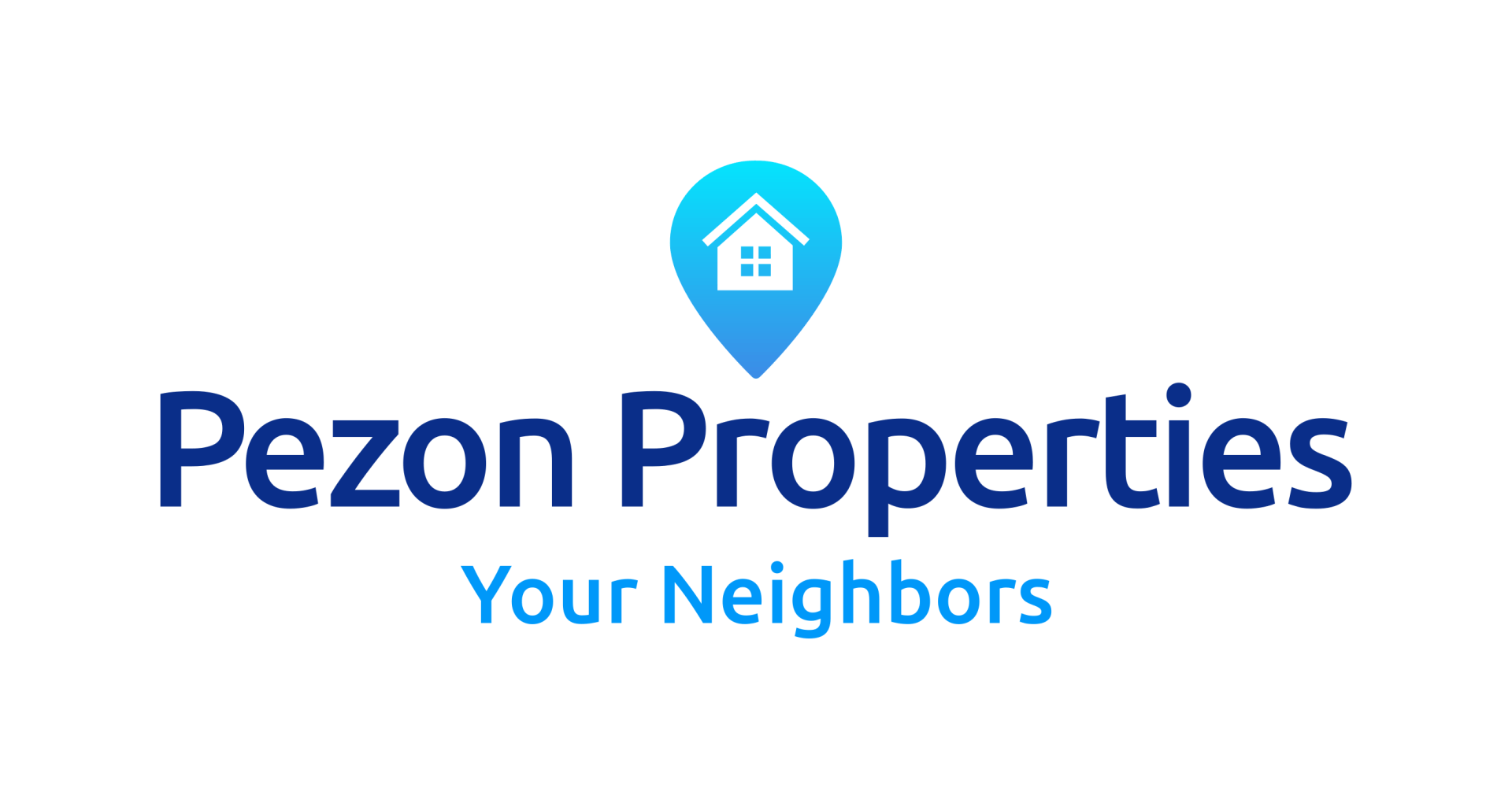Can You Sell a House Before Paying It Off?
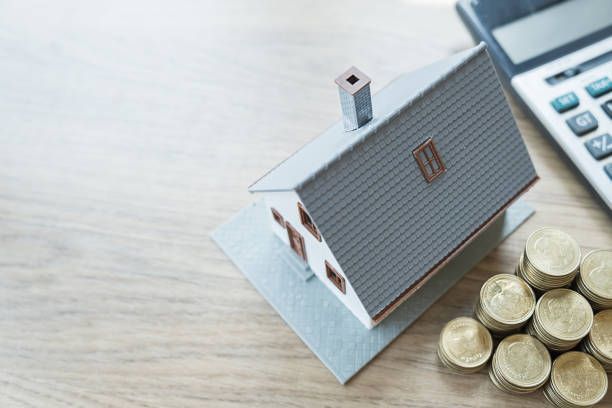
You are stuck with a hefty mortgage payment, and your circumstances have changed. You need to move, but the thought of selling before paying off your mortgage seems complicated and overwhelming.
We understand your concerns about managing mortgage payments while trying to sell. You might worry about penalties, financial implications, or whether it’s even possible to sell now.
These fears can paralyze your decision-making process. This comprehensive guide will show you selling a home before paying off the mortgage. You will learn the step-by-step process and gain confidence in your decision.
Key Takeaways
- Yes, you can legally sell a house before paying off the mortgage, as this is a common practice among homeowners.
- The sale proceeds must first cover the remaining mortgage balance, fees, and interest before you receive any profits.
- Contact your mortgage lender to obtain the exact payoff amount needed to settle the loan during the sale.
- The title company handles the transfer of funds to clear your mortgage during the closing process.
- Your home’s sale price must exceed your mortgage balance, or you’ll need to cover the difference out-of-pocket.
Can You Sell Your House Before Paying?
Yes, you can sell your house while still having a mortgage to pay off. Most people sell their homes before finishing their mortgage payments.
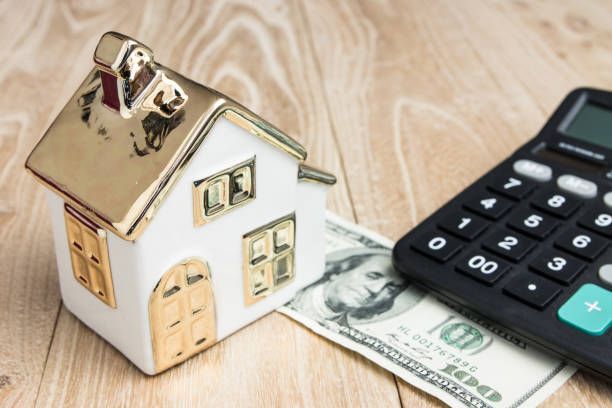
You will need to contact your mortgage company to get a payoff amount. This amount shows how much you still owe on your loan. Your lender will give you an official statement with the final payment details.
The title company works with your lender during the sale process. They handle all money transfers to pay off your remaining mortgage balance. You must stay in touch with your lender to make sure everything goes smoothly.
Your money from the sale will come after paying the mortgage and other costs. This allows you to buy another property or meet other money goals.
What Happens If You Sell Your Home?
You must understand several key steps when selling your home. Your mortgage lender will tell you the exact amount you need to pay off your loan. This amount includes your remaining balance plus any extra fees and interest. You must pay this amount from the money you get at closing.
Your home equity is the money left after paying what you owe on the house. The sale money first goes to clear your current mortgage balance. After that, you will receive any leftover funds from the sale.
You can make good profits if your house value has gone up over time. But you need to pay for closing costs and real estate agent fees first.
You might use the sale money to buy another home or meet other money goals. This works well if you have built up enough equity in your home.
You could face challenges if your home value has dropped below your mortgage amount. In this case, you may need extra money to cover what you still owe on the mortgage.
Advantages of Selling a House Before Paying
You can sell your house before paying off the mortgage while gaining several financial benefits. You will keep more money in your savings by not paying the full mortgage.
The lender will take their share from the sale money instead. This approach helps you maintain your emergency funds and investments. You can also act quickly when market conditions are right.
Your home’s value may have increased since your purchase. This rise lets you benefit from the extra equity in your property. You can use this money to buy a better house or invest elsewhere.
The sale proceeds will also cover your closing costs. This benefit means you won’t need extra savings for these expenses. You can make smart moves in real estate without waiting to finish your mortgage.
Sell Your Home and Pay Off Mortgage
You must pay off your existing mortgage when selling your home. The process requires working with your lender and title company. Your title company will get a payoff statement from your mortgage lender. This statement shows the exact amount you need to pay to clear your loan.
The buyer’s funds will go through the title company at closing. They will first pay off your loan before giving you the remaining money.
Your final payoff amount includes the main balance and extra interest charges. This total is often higher than your current balance because of daily interest fees.
You should contact your lender after accepting a buyer’s offer. The lender will give you a payoff quote that stays valid for 10-30 days. You will need a new quote if your closing extends past this timeframe.
How to Pay Off Your Mortgage Quickly
You can pay off your mortgage faster by using several proven strategies and methods. We recommend switching to bi-weekly payments instead of monthly ones.
This change leads to an extra monthly payment each year. You can add extra money to your principal balance whenever possible. This strategy works well even with small amounts like $100 monthly.

You should consider refinancing if current interest rates are lower than your existing rate. This option may increase your monthly payments but reduces overall interest costs.
You can use unexpected money like tax refunds or bonuses toward your principal. This approach helps decrease your loan balance quickly. We suggest putting any salary increases toward your mortgage payments.
You need to check your monthly expenses to find potential savings. These savings can go directly to your mortgage payments. This method speeds up your journey to becoming mortgage-free.
Equity in Your Home: What to Know
Home equity is the value you own in your property after subtracting your mortgage balance. You build equity in two ways: through mortgage payments and rising property values.
This dual process helps increase your ownership stake over time. Your monthly payments reduce the loan balance and strengthen your position. A rise in local property values can also boost your equity automatically.
Your equity position matters greatly when you want to sell your home. You will receive money after a sale if you have positive equity. This happens after paying off your mortgage and closing costs. Negative equity occurs when you owe more than your home’s worth. We often call this being “underwater” on a mortgage.
You can find your equity through a simple calculation process. First, get your home’s current market value. Then subtract what you still owe on your mortgage. For instance, a $300,000 home with a $200,000 mortgage gives you $100,000 in equity. Market changes can affect your home’s value and your equity position. You should know your equity status before deciding to sell.
Steps to Sell Your Old Home Fast
A strategic plan helps you sell your house fast in today’s competitive market. You need to focus on three key areas: pricing, presentation, and promotion.
You should partner with an experienced real estate agent first. A good agent knows your local market and helps set the right price. They understand current trends and buyer preferences.
Your home must be ready for buyers to move in right away. You should fix any problems and remove personal items from living spaces. A professional stager can make your home more attractive to potential buyers.
A strong marketing plan will attract more interested buyers to your property. You need clear photos, virtual tours, and listings on popular websites. Your agent can promote your home through social media and real estate platforms.
You must price your house based on recent sales in your neighborhood. This helps you avoid the risk of your home sitting too long on the market. A professional appraiser can help you set the right price for a quick sale.
Selling a House with an Existing Mortgage
You can sell a house with an existing mortgage through a well-planned financial process. Your lender plays a key role in managing the sale of your mortgaged property. You must work with them to clear the property lien before completing the sale. The title company will help coordinate with your lender during closing.
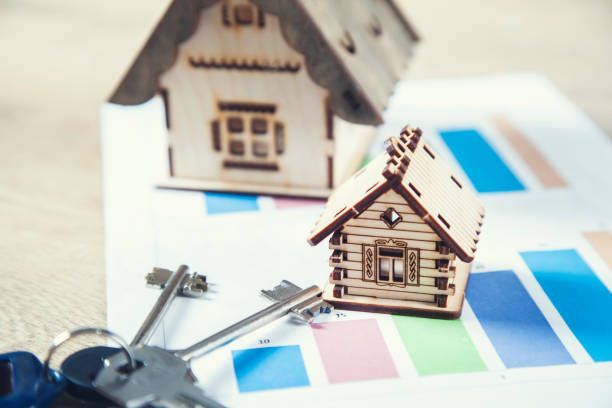
Your sale proceeds will first go toward paying off your remaining mortgage balance. The title company handles this payment directly to ensure the loan is fully cleared. You will receive any extra money after the mortgage payoff is complete.
This process requires careful attention to your current loan balance and expected sale price. You need to know these numbers to understand your potential profit or loss. If your sale price exceeds your loan balance, you will earn a profit.
You must cover any shortfall if your home sells for less than your mortgage balance. This situation might require a short sale agreement with your lender. We recommend calculating all costs before listing your property.
Can You Sell a House with a Mortgage?
You can sell your house with an existing mortgage in a straightforward process. The sale profits will pay off your remaining mortgage balance during closing.
Your lender will cooperate with the real estate agent to complete the transaction. They will provide a payoff statement that shows the exact amount needed. The process works smoothly when you understand the key requirements.
You must ensure the sale price is higher than your outstanding mortgage balance. This requirement applies unless you choose a short sale option. You can also pay the difference from your pocket if needed.
We recommend calculating all costs before listing your property for sale. The expenses include closing fees, real estate commissions, and other selling costs. Your home’s increased value since purchase often covers these expenses.
Your property’s appreciation can result in extra money after paying the mortgage. This outcome means you could make a profit from the sale. The success depends on market conditions and your remaining loan balance.
Sell Your House Before Paying the Mortgage
You can legally sell your house even if you haven’t paid off the mortgage yet. The remaining loan balance will be paid through the sale money. The title company handles this process during closing to clear all existing liens.
You don’t need to wait until your mortgage is fully paid before selling. The buyer’s payment will first cover your remaining mortgage balance. After paying the loan, you will receive any extra money from the sale.
This solution helps homeowners who face financial problems or need to move quickly. You must have enough equity to pay the mortgage balance and selling costs. A lower home value might require extra money to cover the difference.
We recommend working with a real estate agent to review your finances before listing.
Home Sale Process: A Quick Overview
The home sale process moves from listing to closing through several key steps. Your lender must approve the sale if you have a current mortgage.
You should fix and stage your home before listing it for sale. A real estate agent will help you set the right price for your home. Your house will attract potential buyers who may schedule viewings and make offers.
You can move forward after accepting a suitable offer from a buyer. The sale depends on passing the home inspection and getting a proper appraisal. Your lender will ask for specific papers to close out your mortgage properly.
The closing meeting brings all parties together to sign the final documents. Your existing mortgage gets paid first from the sale money. You will receive the remaining funds after paying all closing costs.
Is Selling Your Home Worth It?
Selling your home is a major financial decision that needs careful planning and evaluation. You must check your remaining mortgage balance against current market values.
Your home’s equity plays a key role in determining if selling makes sense now. You can benefit from the sale when your home value exceeds your loan balance.
The real estate market conditions will affect your selling decision. You should watch local property values and buyer demand in your area. This timing can impact your potential profits more than waiting to pay off the mortgage. Your selling costs will include realtor fees and closing expenses.
These expenses usually take up 8-10% of your final sale price. You need to subtract these costs when calculating your potential profits.
Tax implications can also affect your final earnings from the sale. We recommend consulting with a financial advisor about your specific situation. This step helps you make an informed choice about selling your property.
How to Manage Your Old Home Sale
You must understand the home selling process when you have an existing mortgage. This requires close coordination with your mortgage lender about selling procedures. You should first check your payoff amount with the lender.
Your home equity is valuable but proper mortgage handling remains essential for selling. A skilled real estate agent will help guide your mortgage settlement process. They can set the right price based on your loan balance and market trends.
You need to stay in touch with your lender during the buyer’s inspection period. Your lender must provide a clear payoff statement before the sale closes. The title company will handle the mortgage payoff through your agent’s coordination.
You should collect your loan papers, tax files, and insurance details early. This preparation will lead to a smoother home sale process.
Need a New Mortgage? Sell Your Old Home
Selling your home and getting a new mortgage can be challenging, but we’re here to help you navigate the process.
It all starts with evaluating how much equity you have in your current home, which you can use as a down payment for your new property. Lenders will look at your income, debt ratio, and credit score to see if you can manage payments on both properties at the same time.
Timing gaps between selling your home and buying a new one can create financial stress. That’s where bridge financing comes in handy—it covers expenses during the transition.
You can also add a sale contingency to your purchase offer for the new home. This means you’ll only move forward with the purchase after selling your current home.
Bridge loans are a great option to avoid paying two mortgages at once, but they may not always work in competitive markets where sellers are hesitant to accept sale contingencies.
That’s why it’s essential to explore all your financing options with a trusted lender. As a cash home buyer-
- We buy houses in Upper Moreland
- We buy houses in Upper Merion
- We buy houses in Upper Mount Bethel Township
- We buy houses in Upper Providence
- We buy houses in Warminster
- We buy houses in Warrington Township
- We buy houses in West Chester
- We buy houses in West Whiteland
Besides these locations, we also buy houses in other popular areas across Pennsylvania. Whether you’re looking for a quick sale or need assistance with the transition, we’re ready to make the process easy for you.
Ready to Sell? Try Pezon Properties Cash Home Buyers!
Pezon Properties Cash Home Buyers provides a faster way to sell your house than traditional methods. You can avoid the usual delays of mortgage approvals and lengthy home inspections. This service helps homeowners who need quick sales or face difficulties with standard selling methods.
We buy houses in any state and complete most deals within two weeks. You won’t need to fix anything or handle complex paperwork. Contact Pezon Properties team can help if you’re behind on payments or dealing with foreclosure.
You should know that cash offers are usually lower than market prices. However, this option works well if you need to move fast. The money can help pay off your current loan. We make the process simple and straightforward for sellers.
You must compare our offer with regular market prices before deciding. This step ensures you make the best choice for your situation. We aim to create a win-win solution for every transaction.
Give us a call anytime at 484-484-0971 or fill out this quick form to get started today!
Get A Fair Cash Offer On Your House

About the author
Mathew Pezon
Mathew Pezon is the founder and CEO of Pezon Properties, a cash home buying company located in Lehigh Valley, Pennsylvania. With several years of experience in the real estate industry, Mathew has become a specialist in helping homeowners sell their properties quickly and efficiently. He takes pride in providing a hassle-free, transparent, and fair home buying experience to his clients. Mathew is also an active member of his local community and is passionate about giving back. Through his company, he has contributed to various charities and causes.


